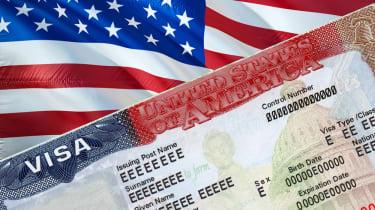The US government has introduced new visa restrictions affecting citizens of Nigeria, Cameroon, and Ethiopia. Under the revised policy, most non-immigrant visas issued to nationals of these countries will now be limited to single-entry and valid for just three months, replacing the previous arrangement that often granted multiple entries for up to two years or more.
This policy change has sparked widespread debate, especially in Nigeria, which has long maintained strong diplomatic, cultural, and educational exchanges with the US. The Nigerian government has expressed its concerns, describing the decision as unfair and potentially damaging to the longstanding relationship between the two nations. Officials warn that the new rules could hinder vital exchanges in education, culture, and business that have been instrumental in fostering mutual understanding and economic cooperation.
According to the US State Department, visa policies are continually reviewed and may be adjusted based on security concerns, diplomatic relations, and international travel standards. In this case, the US is reportedly working with the governments of Nigeria, Ethiopia, and Cameroon to ensure compliance with global standards, particularly in areas like issuing secure travel documents and managing visa overstays.
The visa crackdown comes on the heels of even harsher measures imposed on Eritrea, Somalia, and Sudan, where the US suspended all visa services. The new policy also includes enhanced screening measures, including the review of social media accounts for applicants from affected countries to detect any anti-American sentiment, a move critics say borders on surveillance overreach.
Nigeria, Africa’s most populous country, is also the continent’s top source of international students in the United States and ranks seventh globally for enrollment in American institutions. A recent report revealed a 13.5 percent increase in the number of Nigerian students studying in the US, further underscoring the strong educational ties between both nations.
However, reactions within Nigeria remain divided. An aide to former President Muhammadu Buhari argued on social media that the US move appears more political than procedural. He suggested the policy shift may be linked to growing American unease with Nigeria’s recent diplomatic outreach, including President Bola Tinubu’s participation in a BRICS summit in Brazil, an indication, he claims, of Nigeria’s pivot toward new global alliances.
Read also:
- US releases 2025 Visa waiver list, excludes Nigeria all African Nations
- US universities warn international students of possible visa issues in Trump’s return to power
- US make No-Interview Students Visa Renewals Available
On the other hand, immigration lawyer Godwin Oke believes the new rules are simply an application of the principle of visa reciprocity. He noted that while the US had previously offered Nigerian citizens five-year multiple-entry visas, Nigeria offered American visitors only short-term, single-entry visas. According to him, the US may be seeking to restore balance in visa arrangements between both countries.
Concerns about overstaying US visas have also resurfaced. In March, the US mission in Nigeria issued a strong warning that individuals who overstay their visas could face permanent travel bans and even legal consequences. While precise data on Nigerian visa overstays remains unclear, the issue has become increasingly relevant as US immigration policies tighten under the Trump administration’s return to power.
The new visa restrictions may further dampen the hopes of many young Nigerians eager to migrate, a trend popularly referred to as “Japa.” For years, the United States has been one of the top destinations for Nigerian professionals, students, and entrepreneurs seeking better opportunities abroad. As new barriers emerge, many are now reevaluating their options, questioning whether the American Dream remains within reach.
